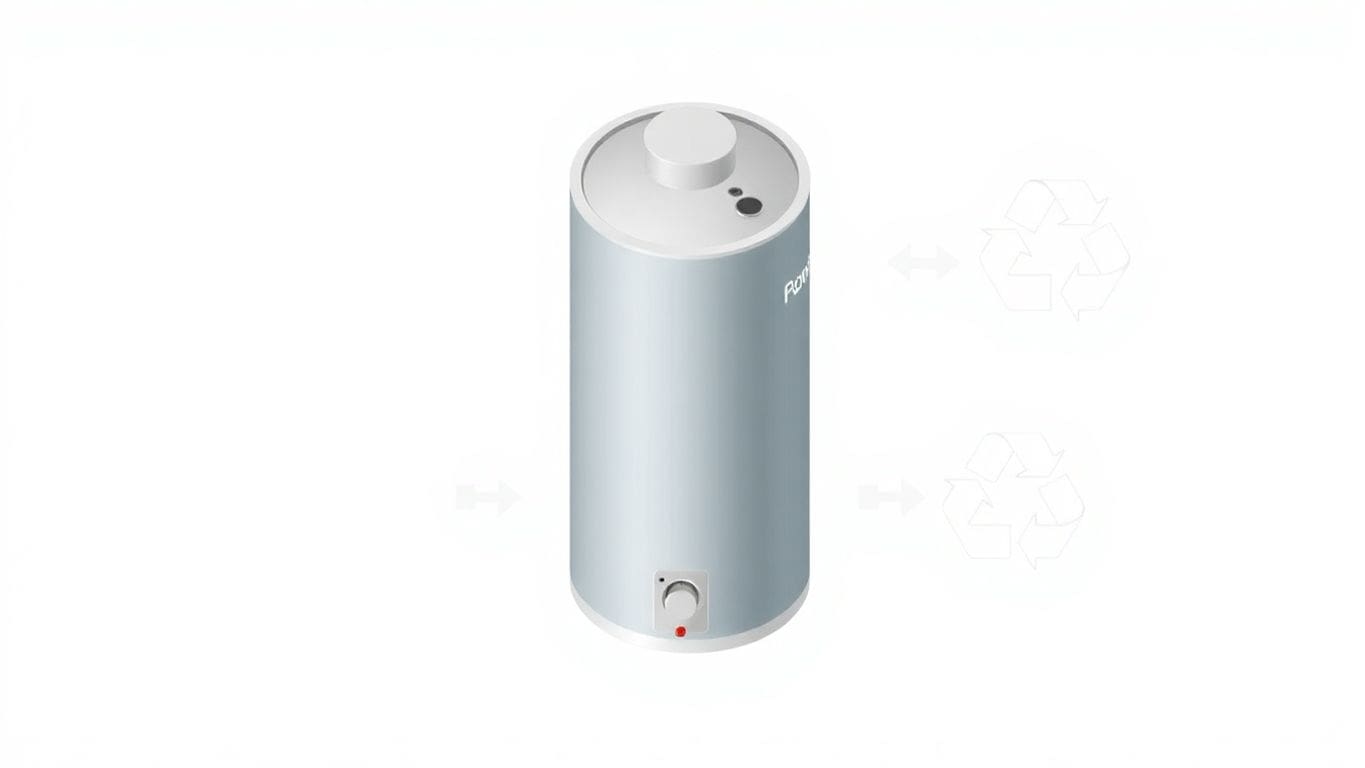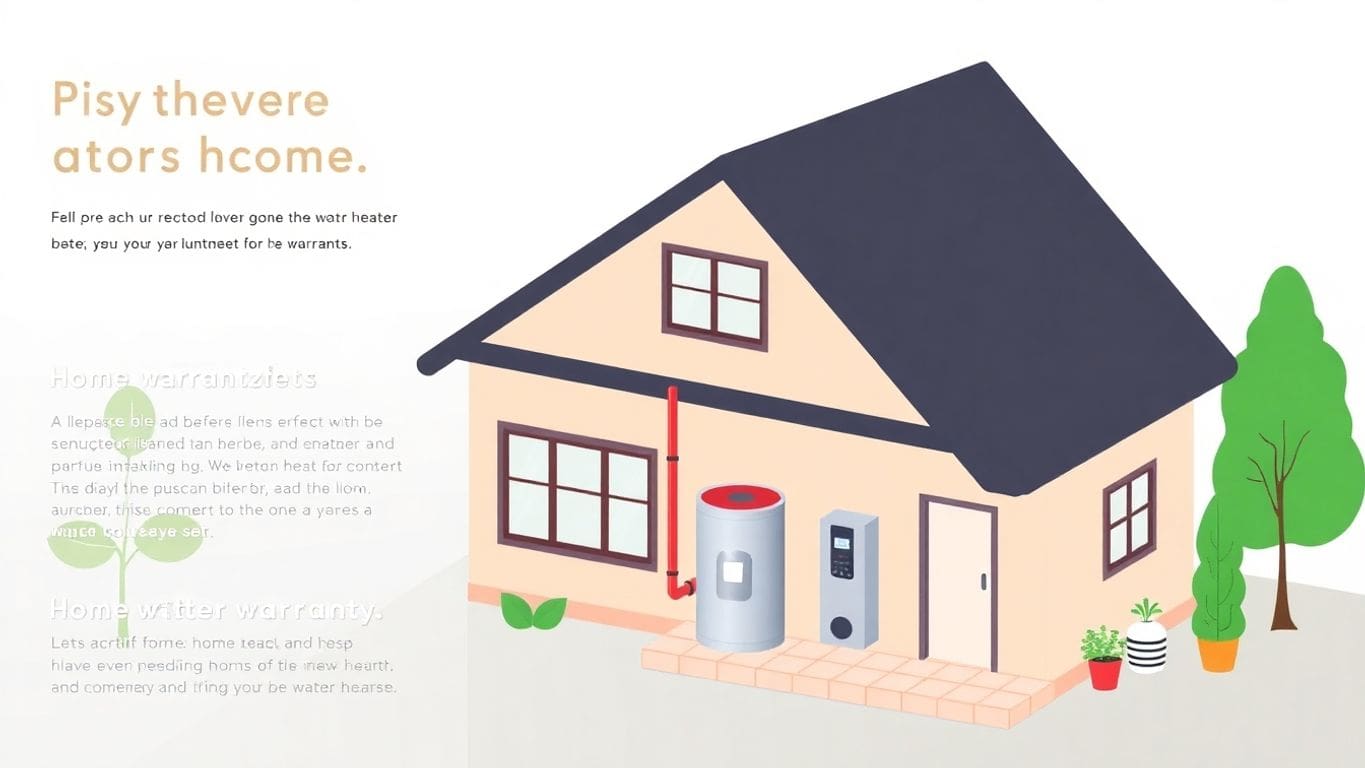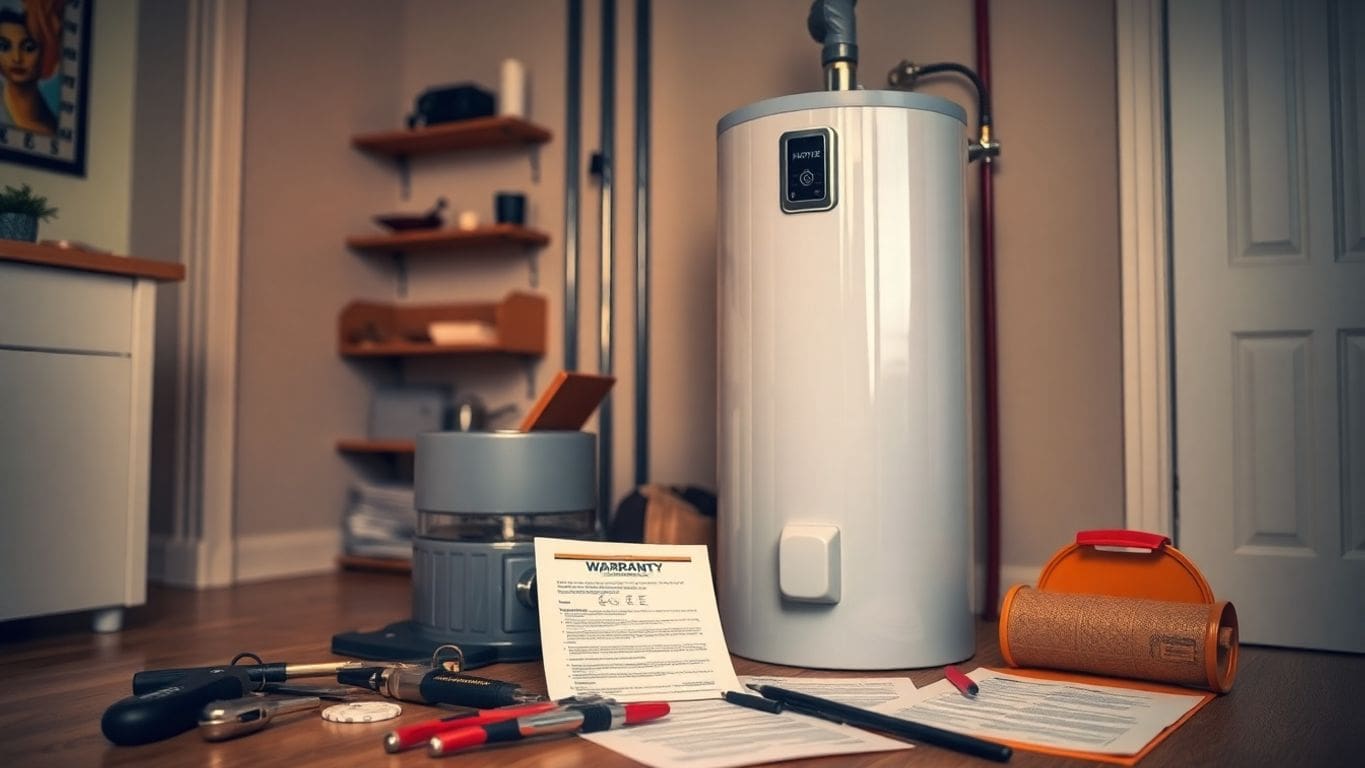
If your water heater is acting up, you might be wondering how to find water heater repair near me. This guide will walk you through the process of identifying issues, searching for local services, and preparing for repairs. Whether it’s a minor fix or a major issue, knowing what to do can save you time and stress.
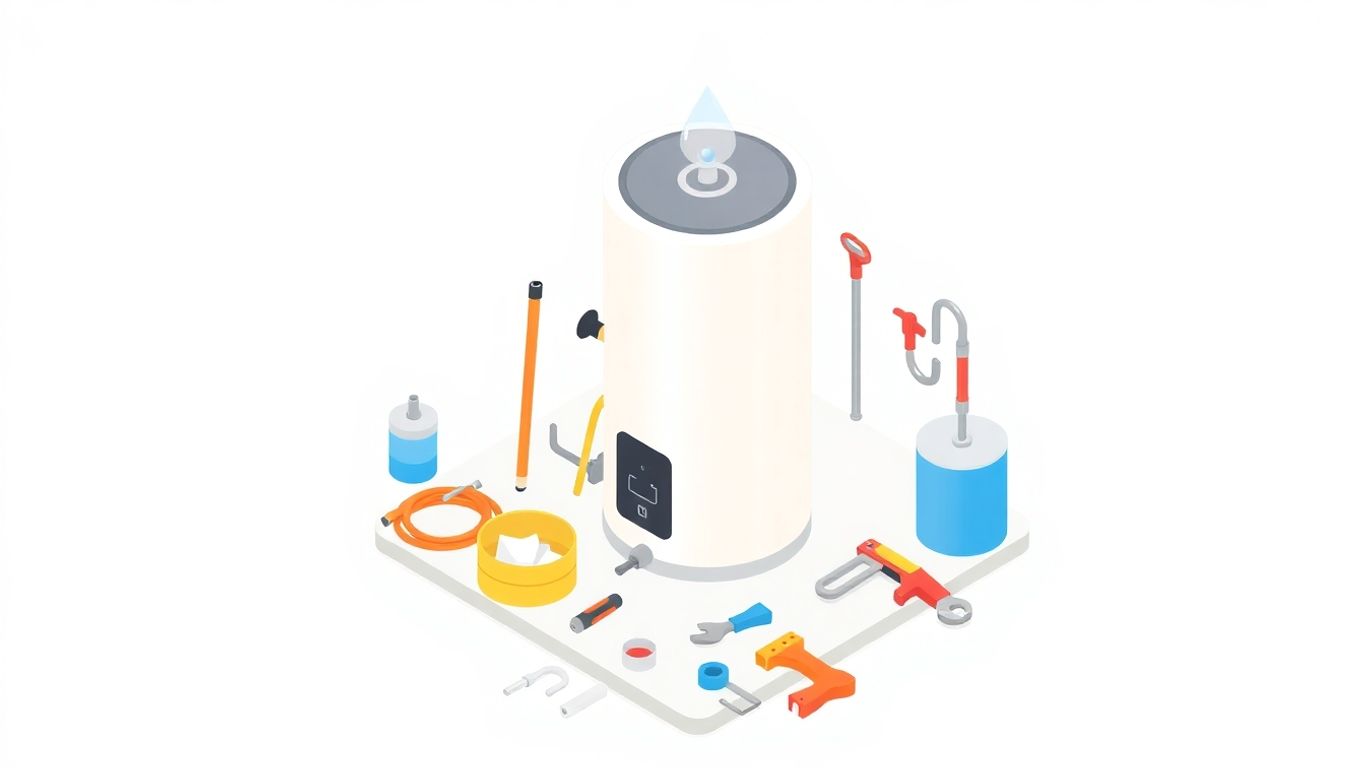
Your water heater is super important. It gives you hot showers and helps you wash dishes. But, like anything else, it can have problems. Knowing what to look for can save you from a cold shower!
Is your water heater acting up? Here are some signs to watch out for:
Water heaters can have different kinds of problems. Here are a few common ones:
Some water heater problems are easy to fix yourself, but others need a pro. Call a plumber if:
Trying to fix a water heater yourself when you don’t know what you’re doing can be dangerous. It’s always better to be safe than sorry. A professional can diagnose the problem quickly and fix it correctly.
Finding someone to fix your water heater doesn’t have to be hard. There are a few ways you can find reliable repair services near you. Let’s look at some simple methods to get you started.
Online directories are a great place to start your search. Websites like Yelp, HomeAdvisor, and Angie’s List (now Angi) list local businesses and their reviews. You can type in "water heater repair" and your zip code to find services in your area.
Don’t forget to ask people you know for recommendations. Your friends, family, and neighbors might have used a good repair service in the past. Word-of-mouth is often a reliable way to find trustworthy professionals.
"I always ask my neighbors for recommendations before searching online. It’s nice to hear about someone’s experience firsthand. Plus, you know they’re local and have probably dealt with similar issues."
Check local listings like the Yellow Pages or community newspapers. While online directories are popular, some local businesses still rely on these traditional methods. You might find smaller, family-owned businesses that don’t have a big online presence. Also, check Craigslist or Facebook Marketplace, but be extra careful to verify their credentials and read reviews if available.
When your water heater goes on the fritz, you want to make sure you’re picking the right repair service. It’s not just about finding someone quick; it’s about finding someone reliable and trustworthy. Here’s how to check out your options.
Customer reviews are super important. They give you a real look at what other people thought of the service. Look for reviews on sites like Google, Yelp, or even the company’s own website. Pay attention to what people say about the technician’s professionalism, how well they explained the problem, and if they fixed it right the first time.
Don’t just look at the star rating. Read a few reviews to get a feel for the company. A bunch of 5-star reviews that sound fake might be a red flag. Also, see how the company responds to negative reviews. Do they try to fix the problem, or do they ignore it?
Get quotes from a few different companies before you decide. Don’t just go with the cheapest one, though. Think about what’s included in the price. Does it cover the cost of parts? Is there a service fee just for coming out to your house? A super low price might mean they’re cutting corners somewhere else.
Here’s a simple table to help you compare:
| Service | Company A | Company B | Company C |
|---|---|---|---|
| Service Fee | $50 | $75 | $35 |
| Hourly Rate | $100 | $85 | $110 |
| Parts Cost (Est) | $150 | $150 | $150 |
Make sure the repair service has the right credentials and licenses. This means they’ve had the right training and are allowed to work on water heaters in your area. You can usually find this info on their website or by asking them directly. Also, check if they’re insured. This protects you if something goes wrong during the repair.
Here’s a quick checklist:
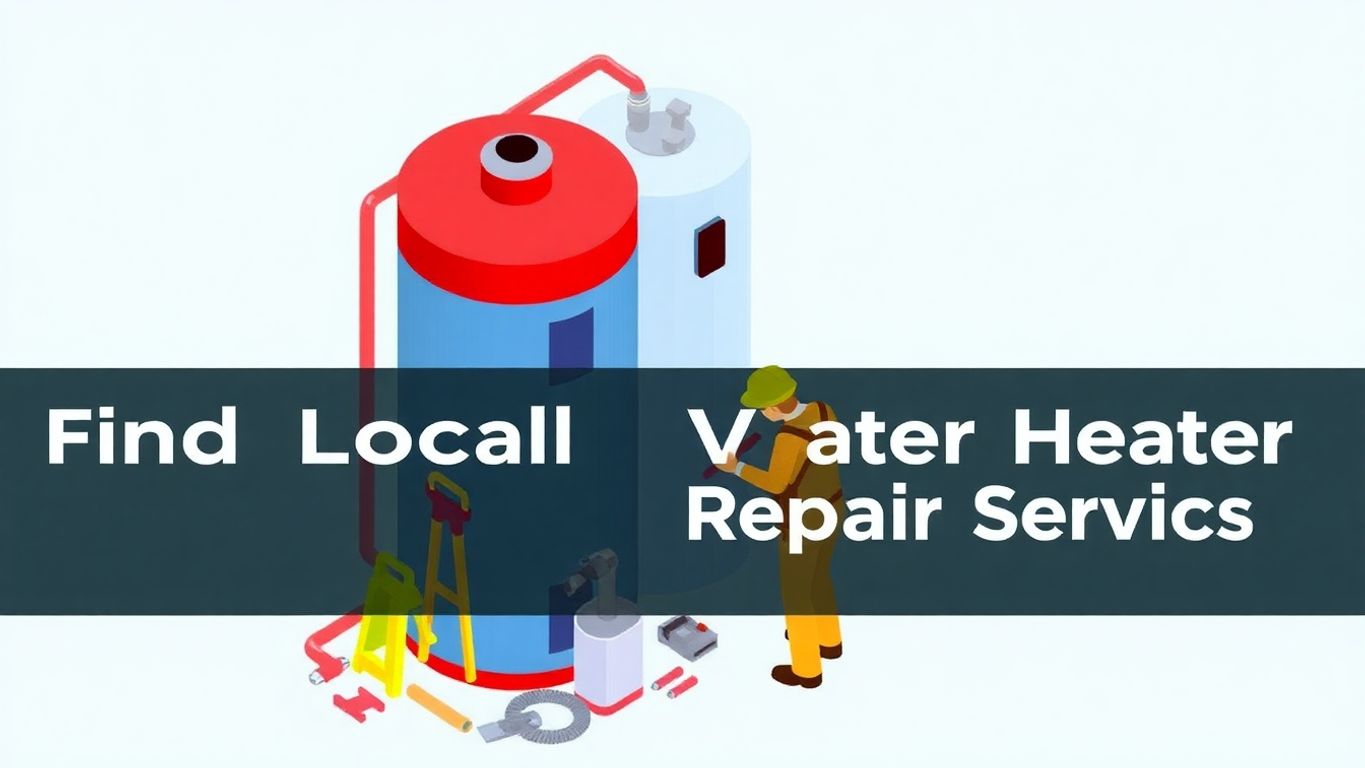
When you call a repair person, it’s a good idea to ask some questions. This helps you know what to expect and if they are the right person for the job. Don’t be shy! It’s your home and your money.
First, ask if they have worked on your kind of water heater before. There are different types, like gas, electric, and tankless. You want someone who knows what they are doing with your specific heater. It’s like taking your car to a mechanic who knows that model well.
Ask how long the repair should take. This gives you an idea of their plan. Keep in mind that sometimes problems pop up that they didn’t expect, so the time might change. But a good estimate helps you plan your day.
It’s important to know if the repair work and the new parts come with a warranty. A warranty means if something breaks again soon after the repair, they will fix it for free or at a lower cost.
Getting a warranty gives you peace of mind. It shows the repair person believes in their work. Make sure to get the warranty details in writing so you know what is covered and for how long.
Here are some things to check about the warranty:
Okay, you’ve found a repair service. Now, let’s get ready for their visit. Being prepared can make the repair go smoother and faster. It also helps the technician figure out the problem quickly.
Before the technician arrives, collect some info about your water heater. This includes the model number, age, and any past repair history. Write down when you first noticed the problem and any strange noises or leaks you’ve seen. The more details you can give, the better prepared the technician will be to diagnose the issue.
Make sure the area around your water heater is clear. Move any boxes, furniture, or other items that might be in the way. The technician needs space to work safely and efficiently. A clear path also prevents accidents and makes it easier to move tools and equipment.
Ask the repair service what to expect during the appointment. Will they need to turn off the water or electricity? How long will the repair take? Knowing what’s going to happen can ease your worries and help you plan your day. Don’t be afraid to ask questions!
Knowing what to expect can really help you feel more in control. It’s also a good idea to keep kids and pets away from the work area for safety.
Sometimes, you might think about fixing your water heater yourself. Other times, it’s best to call a pro. Let’s look at when it’s okay to DIY and when you need a professional.
Some small water heater tasks are safe to do yourself if you’re comfortable with basic home repairs. These might include:
If you’re unsure about any step, it’s always best to call a professional. Your safety is the most important thing.
Here are some repairs people often try to do themselves:
Trying to fix your water heater yourself can be risky. Here’s why:
If you’re not comfortable working with gas, electricity, or plumbing, it’s always best to call a professional. It might cost more upfront, but it can save you money and headaches in the long run.
Several things change how much you’ll pay to fix your water heater. The type of problem is a big one. A small fix, like tightening a loose connection, will cost less than replacing a broken part. The kind of water heater you have also matters. Gas, electric, and tankless heaters all have different parts and can take different amounts of time to repair. Also, where you live can affect the price. Cities often have higher labor costs than smaller towns. Finally, the time of day or week can change the price. Emergency repairs on nights or weekends usually cost more.
It’s helpful to know what some common water heater fixes usually cost. Replacing a heating element might cost between $100 and $350. Fixing a gas valve could be a similar price. Replacing a thermocouple could be less expensive, maybe around $100 to $200. Keep in mind these are just averages. The final cost depends on your specific situation. Here’s a quick look at some typical repair costs:
| Repair | Average Cost |
|---|---|
| Heating Element | $100 – $350 |
| Gas Valve | $100 – $350 |
| Thermocouple | $100 – $200 |
| Thermostat | $100 – $300 |
| Anode Rod Replacement | $200 – $400 |
Getting a good estimate is key to avoiding surprises. Call a few different repair services and explain your problem clearly. Ask them to give you a written estimate that includes everything: parts, labor, and any service fees. Don’t just go with the lowest price. Make sure the company is licensed and has good reviews. Ask if they charge by the hour or a flat rate. A flat rate can be better because you know the total cost upfront. Also, ask if the estimate is free. Some companies charge for an estimate, but then take that off the final bill if you choose them for the repair.
Getting a detailed estimate in writing is super important. It helps you understand what you’re paying for and protects you from unexpected charges. Make sure the estimate includes a breakdown of costs for parts and labor, and don’t be afraid to ask questions if something isn’t clear. This way, you can make an informed decision and avoid any unpleasant surprises later on.
Sometimes, your water heater breaks down at the worst time. Maybe it’s late at night, during a holiday, or on a weekend. That’s when you need emergency repair services. Let’s talk about how to find them.
First, you need to know what counts as an emergency. It’s not just a minor inconvenience. Here are some signs you need immediate help:
Many companies offer 24/7 emergency repair services. This means they’re available to help you any time, day or night. Here’s how to find them:
When you find an emergency service, be ready to give them important information. This includes your name, address, phone number, and a description of the problem. Be clear about what’s happening so they can send the right help. Also, ask about their response time and fees for emergency calls.
It’s a good idea to keep the contact information for a 24/7 repair service handy. You never know when you might need it. Save the number in your phone or post it somewhere visible, like on your refrigerator.
Taking care of your water heater can help it last longer and work better. Regular maintenance can also stop small problems from becoming big, expensive ones. Here’s what you should know:
Keeping up with these simple tasks can really extend the life of your water heater and save you money in the long run. It’s like giving your water heater a regular check-up to keep it healthy.
Pay attention to how your water heater is working. If you notice any of these signs, it could mean there’s a problem:
If you spot any of these issues, it’s best to call a professional to take a look. Ignoring them could lead to bigger problems later.
Getting your water heater checked regularly by a pro has many benefits:
Think of it like taking your car in for an oil change. It’s a small investment that can save you from major repairs down the road. Plus, you’ll have peace of mind knowing your water heater is in good shape.
If your water heater is on the fritz, or you’re just looking to upgrade, you have options! There are several types of water heaters out there, each with its own pros and cons. Let’s take a look at some alternatives to the standard tank water heater.
Tankless water heaters, also called on-demand water heaters, heat water only when you need it. This means you don’t have a tank of water sitting around, losing heat.
However, they can be more expensive to install, and you might need to upgrade your gas line or electrical panel.
Solar water heaters use the sun’s energy to heat water. They usually have solar collectors installed on your roof and a storage tank.
Keep in mind that solar water heaters depend on sunlight, so their performance can vary depending on the weather. You might also need a backup system for cloudy days.
Choosing the right water heater depends on your needs, budget, and home. Here are some things to think about:
Consider talking to a professional to help you decide which type of water heater is best for your home. They can assess your needs and recommend the right size and type of heater for your situation.
It’s a big decision, but with a little research, you can find the perfect water heater for your home!
It’s easy to forget about rules when you’re dealing with a broken water heater. But, knowing the local rules can save you from problems later. Here’s what you should know:
Plumbing codes are rules that your city or town makes about how plumbing work should be done. These rules are there for safety and to make sure things work right. These codes cover everything from the type of pipes you can use to how water heaters must be installed. You can usually find these codes on your city’s website or at the local library. It’s a good idea to check them before you start any work.
Sometimes, you need a permit before you can do certain repairs on your water heater. A permit is basically permission from the city to do the work. This is more common for bigger jobs, like replacing a whole water heater. To find out if you need a permit, call your local building department. They can tell you what kind of work needs a permit and how to get one. Getting a permit might seem like a pain, but it makes sure the work is done safely and correctly.
Following the rules isn’t just a good idea, it’s important. If you don’t follow the plumbing codes, you could have problems with your water heater later on. Plus, if you ever sell your house, a home inspector will check to see if everything was done to code. If it wasn’t, you might have to fix it before you can sell. So, doing things right from the start can save you time and money in the long run.
Ignoring local regulations can lead to fines, safety hazards, and issues when you try to sell your home. Always check with your local authorities to ensure your water heater repairs meet all requirements.
Here’s a quick list of why compliance matters:
It’s a good idea to think of your water heater repair service as more than just someone you call when things break. Building a solid relationship with a technician can save you headaches and money in the long run. Here’s how to do it.
Trust is super important. You want to feel good about letting someone into your home and working on your stuff. Start by being clear about what you need and asking lots of questions. A good technician will be happy to explain things and answer your questions without making you feel silly. Pay attention to how they communicate and if they seem honest and upfront about costs and repairs. If something doesn’t feel right, it’s okay to look for someone else.
Think of your water heater like your car. It needs check-ups to keep running smoothly. Regular maintenance can catch small problems before they become big, expensive ones. A technician can flush out sediment, check the anode rod, and make sure everything is working as it should. This can extend the life of your water heater and save you money on repairs in the long run.
Here’s a simple schedule to consider:
Sticking with the same repair service has some real perks. They’ll get to know your water heater and your home’s plumbing system. This means they can diagnose problems faster and more accurately. Plus, they might offer you discounts or priority service as a loyal customer. It’s like having a trusted family doctor for your water heater!
Having a long-term relationship with a service provider means they’re familiar with your system. This can lead to quicker diagnoses and more personalized service. They’re also more likely to give you the best advice because they know you’re in it for the long haul.
If you notice leaks, strange noises, or if the water isn’t getting hot, these could be signs your water heater needs repairs.
You can search online, ask friends for recommendations, or check local business listings.
Read customer reviews, compare prices, and make sure the company has the right licenses and experience.
Ask about their experience with your type of water heater, how long repairs will take, and if they offer warranties.
Some small repairs can be done by homeowners, but it’s usually best to call a professional to avoid risks.
Costs can vary based on the type of repair needed, parts required, and labor rates in your area.
If you have a major leak, no hot water, or if the heater is making loud noises, it’s time to call for help.
Regularly check for leaks, flush the tank once a year, and schedule annual maintenance to keep it running well.

